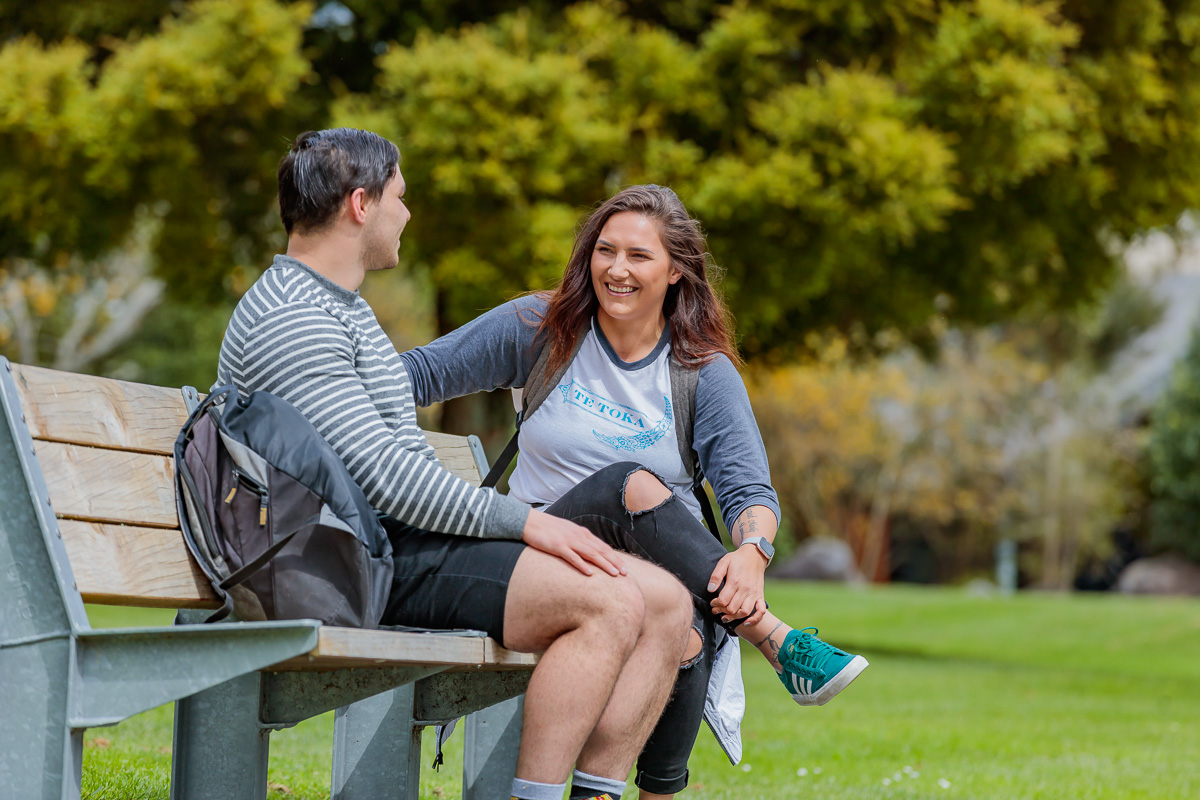Community Psychology

Why study Community Psychology?
Community psychologists contribute their expertise in a number of health and social services to encourage healthy people and communities. They develop, support and evaluate interventions that enhance health outcomes for individuals, whānau and communities.
Community psychology as an applied social science encourages inter-disciplinary approaches to learning, including sociology, community development, education and the policy sciences. Training involves awareness of the social and cultural positioning of the practitioner, critical perspectives on knowledge creation and the development of analytical skills in research and practice. Experiential knowledge is valued, along with knowledge derived from empirical studies.
Informed by an understanding of the Social Determinants of Health, community psychologists develop, support and evaluate interventions that will enhance health outcomes for individuals, whānau and communities in Aotearoa. With a focus on social justice, te Tiriti o Waitangi, and sustainability we are skilled in analysing how the complex array of policies, systems and structures in society are developed and organised and the impact they have on individuals and communities especially those who are oppressed, stigmatised or marginalised.
Community psychology is a specialty subject taught in several universities across Aotearoa. At the University of Waikato, we offer an accredited programme that leads to registration with the New Zealand Psychologists Board in the psychologist scope of practice.
The Postgraduate Diploma in the Practice of Psychology (Community) offered at Waikato is a programme of study that can be entered at the level of honours, masters or above. Students that complete a Community psychology programme will have a minimum of six years university education, be able to articulate and demonstrate a high standard of ethical practice. As part of their practice, Community Psychologists will participate in regular supervision and yearly audits of their practice as part of their registration requirements.
Entry is competitive and subject to departmental selection processes. Early application is encouraged.
Career opportunities
- Case Management
- Child Protection
- Community Programme Coordinator
- Community Psychologist
- Education and Development
- Health promoter
- Kaiwhakahaere (Iwi Liaison Policy Analyst)
- Policy Analyst
- Private Practitioner
- Research Scientist
Study Community Psychology in these qualifications
Undergraduate Community Psychology Papers
Undergraduate papers taught within the School of Psychology that will provide potential community psychology students with a strong theoretical basis for moving into graduate study in this field include:
Community psychologists focus on the health and wellbeing of their communities
Community psychologists contribute their expertise in a number of health and social services to encourage healthy people and communities. For example, they may be employed in the areas of research, policy, strategic planning, whānau ora, mental health, community development, and in public and population health. They value working with people across a range of sectors to initiate, develop and promote prevention and intervention strategies that improve the health outcomes for people and communities.
Community psychologists work across various sectors
Community psychologists work with health, education, justice, disability, iwi, environmental and social services providers, policy makers and funders. We offer knowledge and skills in a range of policy and evaluation research methods and approaches. We will set up and carry out policy analyses and the evaluation of programmes and initiatives across a wide range of organisations, including central and local Government, non-government and community based organisations and groups. Community psychologists employ a wide range of methodologies, the choice of method being determined by the particular context and issue being addressed. There is a focus on group, community and societal interventions which address the structural factors maintaining oppression and sub-optimal health. Community psychologists pay particular attention to process, valuing bottom-up, inclusive and collaborative ways of working.
This content is a modified version of that developed by practitioners and academic staff in cooperation with the New Zealand Psychological Society and the Institute of Community Psychology Aotearoa, August 2016.
Scholarships and prizes
Search for available scholarships with our Scholarship Finder.
Documents
- 2026 Community Psychology Graduate Handbook (PDF, 5.8MB)
- 2026 Community Psychology Intern Application Handbook (PDF, 929kb)
Academic Staff
- Dr Bridgette Masters-Awatere
Professor, Community Psychology Programme Director
Community Psychology Programme Associates
Community Psychology Programme Associates are experienced community workers who help train and guide students. They also support the programme by giving advice and sharing their views when decisions are made.
Current programme associates are:
- Rose Black, BSc, MSocSc, PGDipPracPsych(Comm) PhD Waik
Public Health Senior Policy & Equity Advisor, Community Psychologist
Email: rmblack@xtra.co.nz -
Sherida Davy, MAppPsy(Comm), PGDipPracPsych(Comm) Waik
BOP DHB Mental Health & Addiction Services
Email: sherida.davy@bopdhb.govt.nz
-
Danielle Diamond, MAppPsy(Comm), PGDipPracPsych(Comm) Waik
Clinical Audit and Evaluation Leader, CMH DHB Mental Health and Addictions
Email: ddiamond90@outlook.com
-
Janelle Fisher, BSocSc, MSocSc, PGDipPracPsych(Comm) Waik, Community Psychologist
Email: janelle.logos@gmail.com
- Jane Furness, BEd, MSocSc, PGDipPracPsych(Comm), PhD Waik
Registered Psychologist
Email: jane.a.furness@gmail.com -
Debbie Goodwin, BSocSc Waik, MSW Massey, PGDipPracPsych(Comm) Waik, PhD Auck
Independent Researcher / Evaluator, DBZ Consultancy Ltd
Email: solutions@debz.org.nz
-
Roxahn Hanes, BA, MSocSc Sth Carolina, PGDipPsych(Com) Waik, Registered Psychologist, Manager Psychology & Counselling Service, St Peter’s School, Cambridge
Email: roxie.hanes@gmail.com
-
Hayley Lord, MA Massey, PGDipPracPsych(Comm) Waik
Quality Improvement Consultant, Kawakawa Group Hamilton.
Email: hayley@kawakawagroup.co.nz
-
Neville Robertson, BA Cant, MA PhD Waik
Community Psychologist
-
Nicole Waru, BSocSc, PGDipPracPsych(Comm) PhD Waik,
Community Psychologist
Email: nicole.waru@acc.co.nz
Download and read the Roles and expectations of Community Psychology Programme Associates (PDF, 378kb)